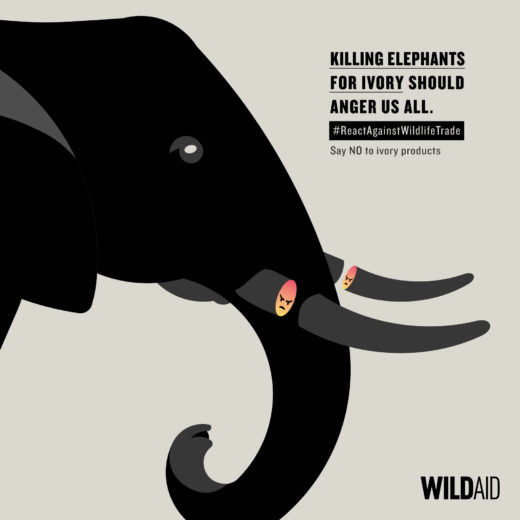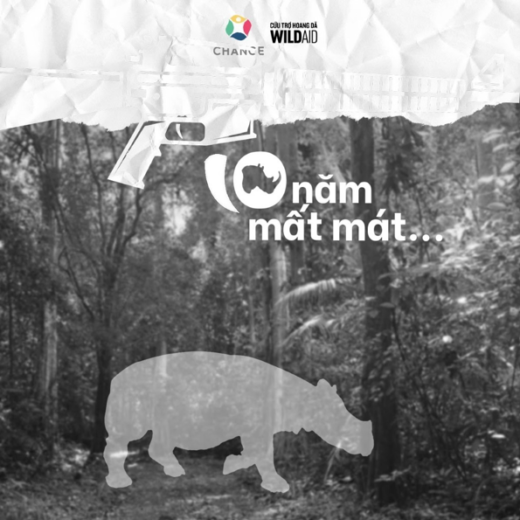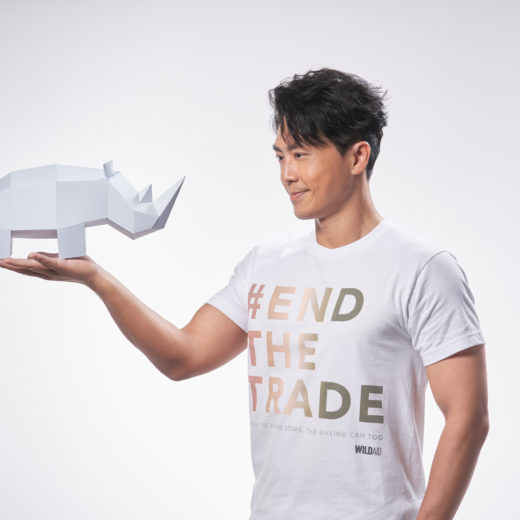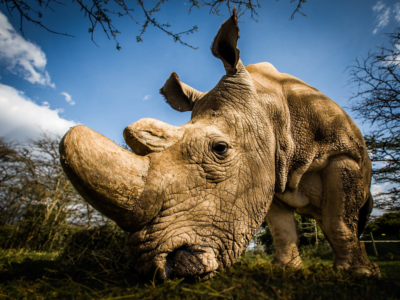
Twenty-five years after China’s ban on the domestic sale of rhino horn, and nine months since Vietnam, the second most significant market for the product, began enforcing its ban, prices of the product have dropped dramatically, according to a new report from WildAid. However, poaching continues in South Africa amidst pervasive corruption and failure to prosecute poaching and smuggling kingpins.
On Friday, South Africa’s Department of Environmental Affairs released new figures showing that 508 rhinos have been poached during January-August, a 26% decrease compared to the 691 killed during the same period last year.
Released for World Rhino Day, the WildAid report explains that demand reduction efforts have begun to take effect with higher levels of consumer awareness and a significant decline in rhino horn prices but more needs to be done to build on this progress.
“When we have seen ivory prices reduced by two-thirds and enforcement efforts stepped up in places like Kenya and Tanzania, we have seen up to an 80-percent drop in poaching,” said WildAid CEO Peter Knights. “However, as rhino prices have dropped and tens of millions of donor dollars have been spent on enforcement in South Africa, poaching is still rampant. Corruption is a massive problem. Poachers have been arrested or even killed, but middlemen and kingpins have avoided jail time. Adding to the problem much of the rhino horn flows through neighboring Mozambique.” Knights added, “We welcome recent reports of improved enforcement efforts, including arrests of syndicate leaders and corrupt officials involved in rhino horn poaching and smuggling. Our hope remains high that such efforts are sustained to reduce rhino poaching further.”
This week, seven key members of a rhino horn poaching and smuggling syndicate, “implicated in a massive trafficking of poached rhino horns” were arrested in South Africa. Five of them were current or former police officers. South Africa’s DEA also reported that there are now 530 rhino poaching-related cases on the court roll with close to 300 trial-ready.
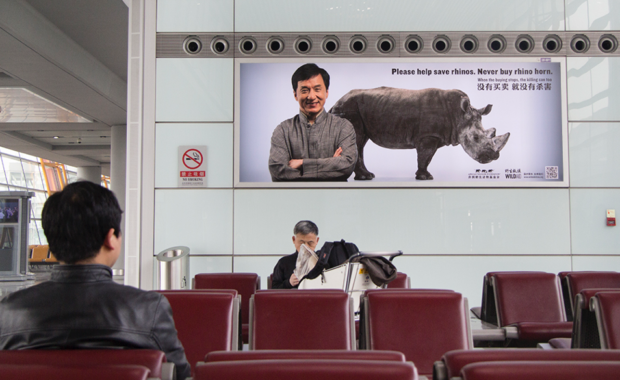

Dozens of popular celebrities such as actor and martial arts icon Jackie Chan have lent their names to the effort in the form of high-impact, culturally sensitive messages, which have alerted several hundred million people to the plight of the rhino.
With rapid economic growth and rising incomes in China and Vietnam, rhino poaching escalated from 17 in 2007 to 1,215 rhinos reported killed in 2014 while the price of rhino horn reached US$65,000 per kg, almost twice that of gold.
But as consumer awareness drastically improves, investigations in Vietnam and China have found that the price of rhino horn has fallen by 70% to roughly half the price of gold and slightly less than cocaine. China seems to remain the main source of current demand with reliance on heavy trafficking through Vietnam.
“Reducing consumer demand coupled with government regulations and stricter enforcement reinforce each other,” said Knights. “In the long term, consumers who are more aware of the impacts of wildlife products will tend not to want to buy or consume them, which reduces both the price and pressure on these species.”
In its report, WildAid makes a series of recommendations to address remaining needs, including calling on the international community to enforce existing laws to arrest, prosecute and punish prominent sellers and end users in China and Vietnam, not just smugglers; raise consumer awareness and further reduce demand in China and Vietnam; arrest and punish organizers and kingpins in South Africa and Mozambique, not just poachers; and establish a “wildlife court” in South Africa to strengthen judicial effectiveness on wildlife crime.
Since 2012, WildAid has worked to raise awareness of the rhino poaching crisis in Vietnam and China. This year, WildAid launched a new message from Kung Fu Panda’s Po, who asserts that “poaching steals from us all.” WildAid distributed Po’s messages via billboards, print and social media in China (including Taiwan and Hong Kong SAR), Vietnam, Thailand, South Africa and the United States.
There are signs that these campaigns are working. A survey in 2014 showed that prior to seeing WildAid PSAs featuring Jackie Chan or Yao Ming, 69% of Vietnamese residents believed that rhino horn had medicinal benefits. A 2016 survey found a drop to just 23%, a 66% decline. Furthermore, only 9.4% of respondents believed rhino horn could cure cancer, down from 34.5%.
On this World Rhino Day, join us in saying no to rhino horn. Together, we can stop rhino poaching and end the demand for rhino horn, because when the buying stops, the killing can too.


Sir Richard Branson featured in WildAid’s high-profile Nail Biters campaign. A post-campaign survey found a 258% increase in the participants’ knowledge that rhino horn is composed of substances found in hair and fingernails, compared with two years earlier.
Stay in touch and get the latest WildAid updates.
SIGN UP

